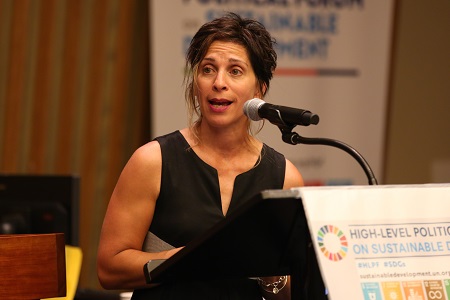“The Shift” to Human Rights-based Housing

At the October 2016 Habitat III Conference at Quito, the current UN Special Rapporteur on adequate housing Leilani Farha launched a campaign promoting a human rights-based approach to housing and housing policy for states. She calls this alternative to the persistent mainstream notions about housing “the shift.” Accordingly, she is joined by housing rights advocates everywhere in seeking both conceptual and operational paradigm shifts consistent with housing as a human right and a social good. These dimensions of housing depart from the typical notion of housing as mere property, and envision the realization of housing in form and function that is “fundamental to inclusive, vibrant and diverse communities.”
Ms. Farha observes, however, that so far governments “heavily rely on private markets to meet their obligation fully to realize the right to housing for all.” She adds, “With that approach, they must regulate private investment in housing consistently with that obligation.” That injunction derives from the reality that the principal objective of such private investment remains to extract profit, with housing production merely as the means toward that end.
A long-standing practice already applies “the shift” to produce housing primarily as a social good and a fulfillment of the human right to adequate shelter. The “social production of habitat” is a practice defined by the Habitat International Coalition as “All nonmarket processes carried out under inhabitants’ initiative, management and control that generate and/or improve adequate living spaces, housing and other elements of physical and social development, preferably without—and often despite—impediments posed by the state or other formal structure or authority.” Social production actually forms the overwhelming majority of housing construction and repair in the world, especially in developing countries.
Recognizing the alignment of social production of habitat with “the shift” principles is timely, particularly in light of the current global policy outcome of Habitat III. Adopting the New Urban Agenda (NUA) at Quito in 2016, states committed themselves to “supporting the social production of habitat, according to national legislation and standards” (para. 31) and “to promoting the role of affordable and sustainable housing and housing finance, including social habitat production, in economic development…” (para. 46).
Implementing this commitment also implies a seismic shift in the conduct of public-private partnerships (PPPs) by restoring the missing “P”—for people—in the formula, and refocuses the objective toward adequate housing criteria as defined in human rights law.
To shift housing policy and production in line with human rights criteria, by definition, means the fulfilment of states’ human rights obligations in the housing sphere. Notably, the duties of states parties to the Covenant on Economic, Social and Cultural Rights, under Article 11, require governments is to (1) respect, (2) protect and (3) fulfill the human right to adequate housing. While the first of these aspects of duty requires states’ governments and other organs to avoid violating that human right, the second calls on them to prevent and remedy violation of that human right by third parties. The third of these aspect is further composed of promoting, facilitating and assisting the realization of adequate housing. This can and should be done by variously supporting social production.
Through this optic, both permanent obligations and temporal commitments of states converge in the shift that the Special Rapporteur is calling for. In this sense, fulfillment of the human right to adequate housing and social production of habitat go hand in hand.
Photo: UN Human Rights Council Special Rapporteur on adequate housing Leilani Farha addresses the High-level Political Forum, 11 July 2018. Source: IISB/ENB | Kiara Worth.
|